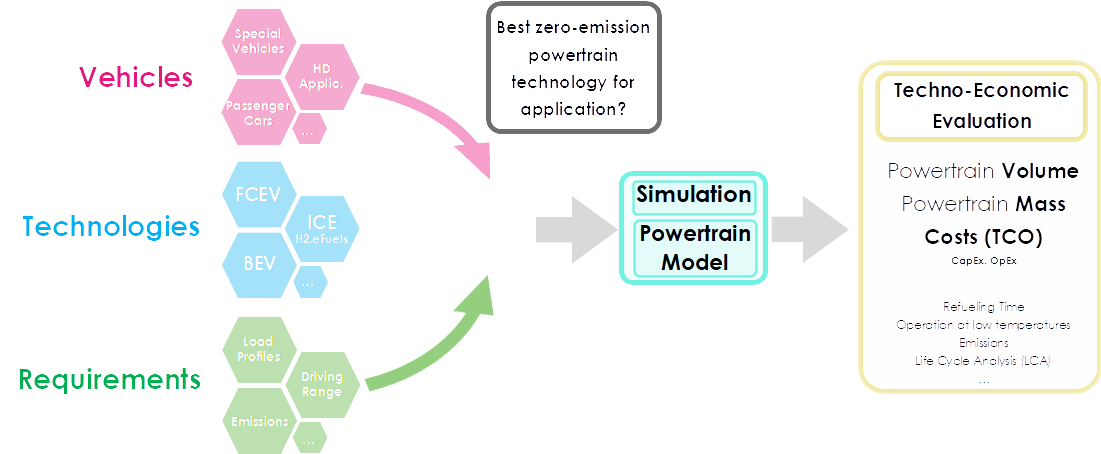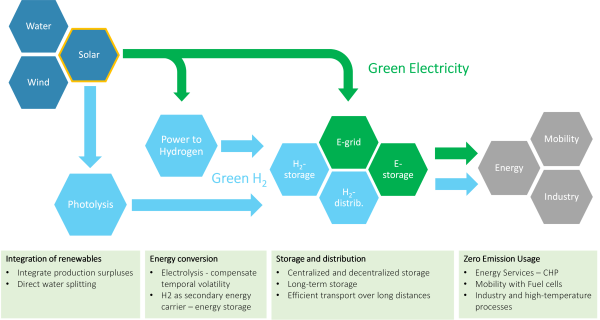IEA AFC Annex 34: Fuel Cells for Transportation (Working period 2022 - 2025)
Short Description
The overarching goal of the project is to combine on an international level leading research institutions and interested parties to advance the introduction of mobile fuel cells into the market and to jointly enable research through exchange.
In detail, the Annex is dedicated to four specific focal points in the following subtasks:
- Subtask 1: Advanced fuel cell systems for transport applications including hydrogen storage technologies.
- Subtask 2: Hydrogen infrastructure and production including well-to-wheel studies as well as decentralised and centralised hydrogen production.
- Subtask 3: Technology validation, in particular for light and heavy-duty vehicles and buses.
- Subtask 4: Economic analysis of fuel cell systems in motor vehicles and hydrogen production.
The aim of the project is to develop recommendations on the topic of modularity of fuel cell systems for transport applications and a cross-border guideline on the possible applications, for example for heavy transport, train and ship applications. The methodological approach is shown in Figure 1.
Furthermore, the project aims to develop two concrete case studies for the use of decentralised and centralised hydrogen production, taking into account the local boundary conditions and prerequisites for mobile applications.
In addition, the project work includes the evaluation of different application scenarios of mobile fuel cells in vehicles, ships and aircraft and deals with both passenger and freight transport.
Based on the previous findings, the economic viability of various application cases will be presented. These will be analysed with the help of an internally developed tool, see Figure 2.
As an overarching result, the project focuses on international cooperation and increased knowledge in order to exploit all possibilities for dissemination. In particular, the opportunities of fuel cell systems in mobile transport applications are to be made more accessible to both specific experts and the general public on the basis of detailed analyses and well-founded results.
Project Images
Terms of use: The pictures listed underneath the header “Project Pictures” originate from the projects in the frame of the programmes City of Tomorrow, Building of Tomorrow and the IEA Research Cooperation. They may be used credited for non-commercial purposes under the Creative Commons License Attribution-NonCommercial (CC BY-NC).
Participants
- Austria
- Canada
- China
- Denmark
- France
- Germany
- Sweden
- USA (Operating Agent)
Contact Address
HyCentA Research GmbH
Dr. Alexander Trattner
Inffeldgasse 15
A-8010 Graz
E-Mail: trattner@hycenta.at



